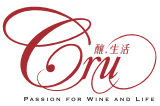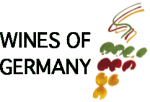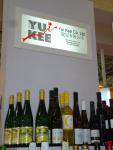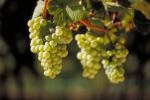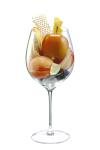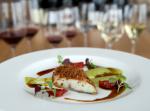Updated: 26th May 2014
About Riesling Weeks 2014
Our promotion to support this event in 2014 is
A discount of 25% on all German wine + a souvenir with free delivery service for any mix case of 12 bottles delivery within July. An extra 10% discount offer to the second purchase onward with delivery can be on or before end of October 2014.
Details of wine from Mosel, price table
Details of wine from Pfalz, price table
A full month promotion is co-hosted by the German Consulate General and Wines of Germany to link restaurants, wine bars, wine clubs and retail outlets around Hong Kong showcasing the quality and great taste of German Riesling.
Promotional period: whole month of June 2014
https://www.facebook.com/pages/Riesling-Weeks-HK/1420629824846409?ref=hl is now live. They will post your activities/offers on it so please send them details.
During this period, we can offer goods deliver service to an venue with 48 hour notice in advance as well as home delivery.
Please check rieslingweeks.germanwines.de for the latest list of participating restaurants and retail outlets. For the members of our wine club please always check out our specialty,
Ways to win prizes!
Riesling Weeks photo contest – Be Inspired and Creative,
Riesling is versatile, cool, green and yellow, and about sharing among friends. Simply share one or more of your photos that convey this Riesling message via Instagram, Facebook or email it to us at RieslingWeeks@gmail.com to enter the ‘Most Creative Riesling photo contest’. and you'll have a chance to win a LEICA D-LUX 6 camera valued at HK$7,300, wine sets and other prizes.
If you order a Riesling at any participating restaurants, you will also receive an OpenRice QR code. Just scan the code and you will be able to enter a lucky draw to win a Vintec Classic series 18-bottle wine fridge valued at HK$4,980, as well as German wines and dining coupons.
Meet the Princess
The German Wine Princess 2014, Ms Nadine Poss, will be visiting Hong Kong during the first week of June and will make surprise visits to participating outlets and restaurants. You could be one of the lucky ones to take a photo with her and ask her all you want to know about German Rieslings.
Pairing Riesling with food
With its versatile style, from light to intense, delicate to powerful, dry to sweet, but all with firm acidity, German Riesling is the perfect companion to Asian food. Here are some tips:
Delicate and fragrant dishes such as steamed seafood, steamed chicken with gi nger, deep fried Thai spring rolls: try these with a dry Riesling that is as refreshing as the dish or an off- dry Riesling that balances the dish’s sweet fragrance.
Roast meat such as Peking duck, roast pigeon or barbecued pork: a concentrated Spätlese Riesling has the acidity to cut through the fat, yet the body is robust enough to stand up to the dish. Its sweetness also echoes the plum sauce that often accompanies the meat.
Stir- fried dishes: these go well with dry Rieslings from Spätlese trocken to Auslese trocken depending on the weight of the dish. For spicy stir- fries, the sweetness in an off - dry Riesling nicely counterbalances the spiciness.
Japanese: sashimi is best paired with a crisp, light dry Riesling to compliment the flavour, while a heavier grilled fish with sweet sauce would be ideal with an aged off - dry Riesling that has sufficient concentration to balance the food.
Thai: fragrant, with herbs and sweet coconut, yet not fierily spicy, Thai food is best with an off - dry or semi- sweet Kabinett, Spätlese or Auslese.
The diversity of Riesling
German Riesling comes in a wide variety of styles that makes it highly versatile as a food companion. They are classified as:
Kabinett: Light and the most delicate. Usually 8- 10% alcohol, with a vibrant acidity well balanced by a touch of residual sugar.
Spätlese: Elegant and more concentrated with pronounced fruit aromas. It can be dry (trocken) or medium.
Auslese: A richer style than Spätlese made from individually selected ripe bunches. Again, it can be dry or sweet.
Beerenauslese: A sweet wine made with overripe grapes that may be affected by noble rot. A complex and rich wine with longevity. Not made every year.
Trockenbeerenauslese: Botrytis affected sweet wine made only in the best vintages. Extremely elegant and long lived, with intense exotic fruit aromas balanced by high acidity.
Eiswein: Ice wine made from healthy grapes harvested at - 8ºC. It has pronounced pure fruit aromas.
German wine at a glance
Crisp and slightly effervescent, fruity, hints of mineral – these are the traits that distinguish German white wines from their counterparts in other countries. This profile is shaped by the special climatic and soil conditions in Germany’s wine growing regions.
Germany is one of the most northerly wine growing countries in the world. It has 13 different wine regions, from the cooler Saale - Unstrut and Sachsen in the north east to the warmer and sunny regions of Baden and Pfalz. Most vineyards are planted on south- facing slopes along river bank s to benefit from the warmth reflected from the water. It has a long growing season with warm days and cool nights, allowing grapes to ripen slowly, thus preserving acidity while developing the flavours. As a result, German wines are more aromatic with a mineral touch, a perfect wine to pair with food, especially Asian cuisine.
The Mosel is perhaps the most famous region in Germany with its steep vineyards sloping at 65º angles, its slate soils and its high quality Rieslings. The wines are delicate with a racy acidity and rich fragrance.
Rheingau is at the heart of the German wine regions with an optimal climate for ripening both Riesling and Spätburgunder (Pinot Noir). It is famous for its elegant dry and off- dry Rieslings with stone fruit aromas supported by lively acidity.
The other wine regions are: Ahr, Nahe, Mittelrhein, Rheinhessen, Hessische Bergstrasse, Franken, Pfalz, Württemberg and Baden; plus Sachsen and Saale- Unstrut in the former East Germany.
Other German terms
Trocken: Dry. Any wine labelled with this word will have less than 9g/l residual sugar.
Halbtrocken: Off- dry, usually 9 - 18g/l residual sugar.
Feinherb: Half- dry, an unregulated designation, usually sweeter than halbtocken, in the range of 12 - 40g/l residual sugar.
Grosses Gewächs (GG)/Erste Gewächs: Equivalent to Grand Cru. Dry wine from Erste Lage (first growth vineyards) under the VDP classification. Alcohol level usually 12- 13.5%.
VDP: the Association of German Quality Wine Estates.

